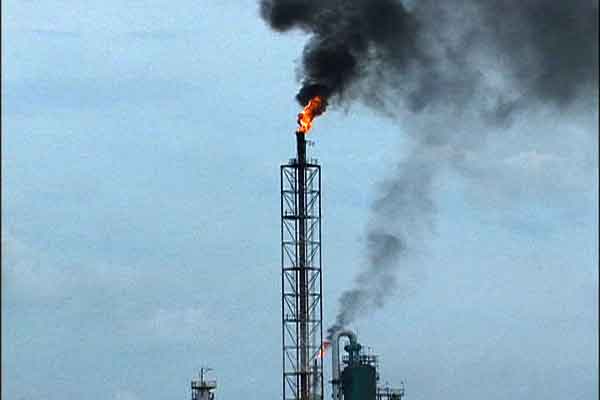

Colombia
is rapidly becoming one of the main oil suppliers to the U.S., following
closely neighboring Venezuela that produces over 1.5 million barrels of
oil a day. Now Venezuela's President Hugo Chavez is viewed as a black
sheep by the current U.S. administration for his leftist policies and
sympathy for other leftist world leaders including Cuba's leader Fidel
Castro. Colombia for its part is governed by a few extremely wealthy families
with historical ties to the U.S. power elite. But their grip over Colombia
is being increasingly challenged by leftist guerillas that already control
most of the countryside.
Located primarily in the North-East and South of the country, Colombia's
oil resources are all the more attractive that they are close to the U.S.
while most other known oil reserves in the world are now starting to dwindle.
But international oil companies including Los Angeles, CA-based Occidental
Petroleum, that are currently prospecting and exploiting these resources
are faced with a major problem: most of these resources are located in
areas controlled by leftist guerrilla movements, primarily the FARC (Revolutionary
Armed Forces of Colombia) and the ELN (Army of National Liberation) that
are "taxing" their operations for their own funding.
Coincidently or not, the focus of the U.S. military assistance under "Plan Colombia" is precisely in these oil-rich countryside areas where the Colombian military and paramilitary forces are having a hard time fighting the guerrilla. In February of 2002 though, the U.S. State Department officially announced shifting its priority in Colombia from anti-drug to anti-guerrilla policy. At the same time, President Bush pushed a request through Congress for a total of $100 Million earmarked to train a new Colombian military unit for the specific mission of protecting the drilling and piping operations of the U.S. Occidental Petroleum corporation in Colombia. The ambiguity of the initial "Plan Colombia" of U.S. President Clinton seems to have dissipated with the now openly pro-oil, anti guerrilla stand of the current U.S. administration that comes entirely from the oil industry.
